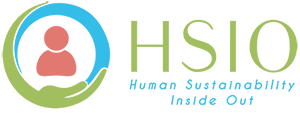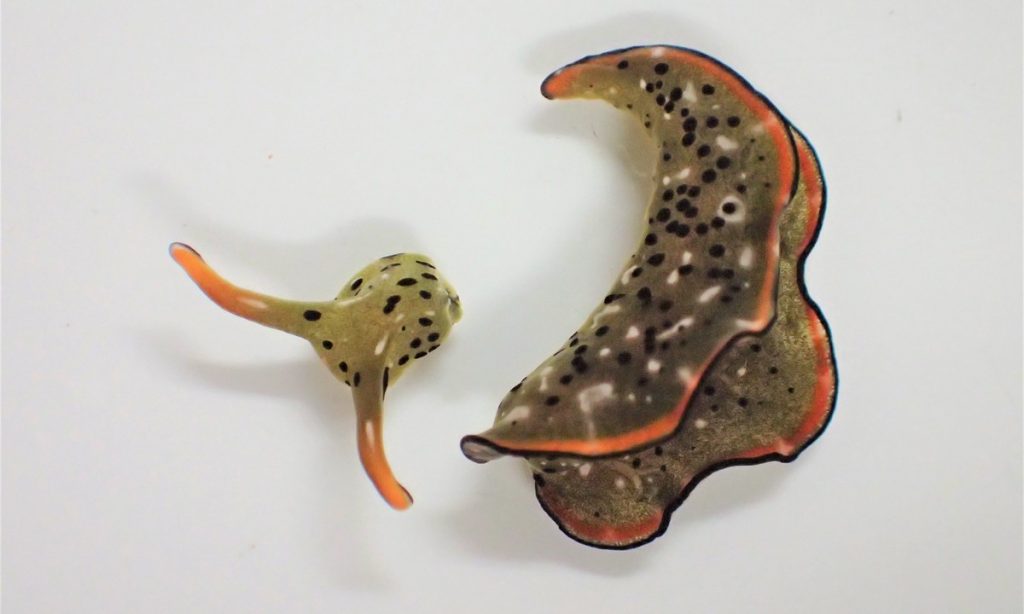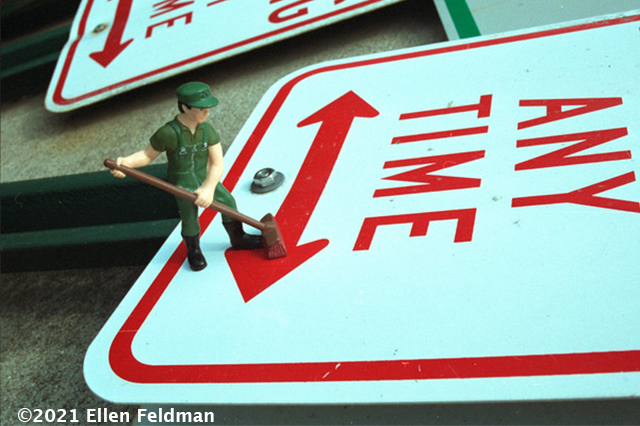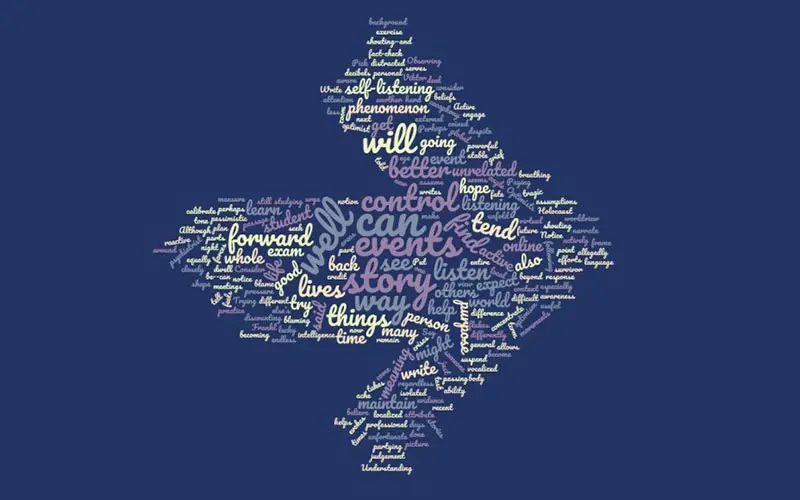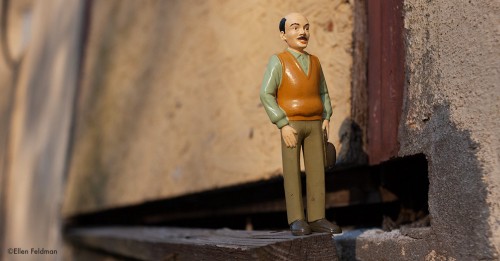With Mel Martin and Alfredo Sáenz
“The question for all of us is: how do we get up again after this K.O.rona? Corona is a trauma. It is also a teacher. We have to learn as much as you can from it to prepare for the future, not to dream of the “best version of you” but the “next version of you,” the one that really fits you. It is an exciting and engaging human transformation.”
— Wladimir Klitschko, heavyweight boxing champion
“The impediment to action advances action. What stands in the way becomes the way.”
— Marcus Aurelius
Japanese sea slug breeds can separate their head from their body after it is infected with parasites. The head remains mobile. Eventually, the self-decapitation wound heals; within a week, the organs regenerate; within three weeks, the process is done. The headless body decomposes, completing the cycle.
A New Covid Chapter
Even though the pandemic is far from over, we are entering a new phase. Suddenly in some parts of the world, the masks are off. A quarter of us will need to change jobs; about as many more will want new jobs. Lives morphed in small and big ways. A core skill, we hear, will be always adapt to change.
Many of us know that we have been altered by forces out of our control. Some of us may feel like this slug — not quite well and inhabited by signs of anxiety, depression, exhaustion. Tired, slow, distracted no matter how hard we work.
In other ways, the story of the slug provides metaphorical hope. During the pandemic, many of us might have realized that we had something close to us cut away, be it a routine, a job, a relationship, or even a loved one. Resilient, like the slug, our wounds will inevitably heal, and parts we lost or shed open new possibilities. No, it was not our choice to change, but what can we become if we think of Covid as the opportunity of our lifetimes? How can we transform the trauma endured into a new body, new self, or new life?
Put another way, as our worlds “normalize,” how do we avoid going back to business as usual, especially in our personal and managerial lives, now that we are subsumed with the logistics of reintegrating into society and reinvigorating our teams, all in the face of exhausting uncertainty?
We need strength, agility, and resilience — attributes that champion boxers need and work very hard to support and further develop throughout their careers.
Losing to Win: A Major Defeat, Reinvention, and a Challenge Management Philosophy
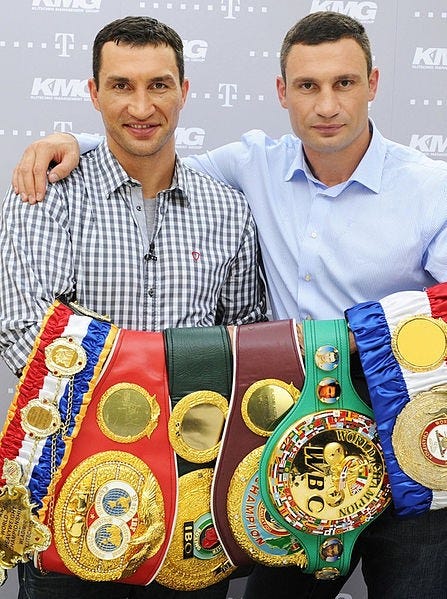
In April 2004 Wladimir “Dr. Steelhamer” Klitschko lost to U.S. boxer Lamon “Relentless” Brewster. “I hate to say it, but it’s time for you to stop,” implored brother Vitali Klitschko.
Wladimir instead persevered in a totally different way — new coach, new team, and new promoter.
He also hired a mental health coach. “At first, I was against it,” he recalled, “because, as the stereotype goes, I thought that I was not ‘that kind’ of weak person. And I discovered a totally new world for me. It changed my life. You have a fitness coach that trains you and makes your body look good. You can do it with your mind, too. My mental coach, Ortwin Meiss, made me realize that the more pressure there is, the calmer I get.”[i]
Together they staged one of heavyweight boxing history’s most remarkable comebacks. “I’ll be thankful to Lamon to my grave,” Wladimir said in 2014. “When I look at this fight it gives me such motivation and freshness.”
Today, Klitschko is more open about his challenges with confidence and uses the lessons he has learned throughout his journey to inspire individuals and companies to face the obstacles and failures in their own lives. Through talks, videos, and workshops, Klitschko has found a new purpose in helping others to face their fears, take steps to rediscover their passions, and transform how they work towards those goals.
Focus. Agility. Coordination. Endurance.
His “Challenge Management philosophy” has four main elements: focus, agility, coordination, and endurance — F.A.C.E. To him willpower can be learned. To do so, he explained in a recent Harvard Business School case study, we should confront a challenge head-on and try to resist the human temptation to turn away in fear and cowardice — or to follow the path of least resistance.
The focus part is about spending the time and energy, like some of us during Covid, to think about a new identity and sense of purpose — what is our obsession. “If you know who you are,” Wladimir believed, “you know what you want. And if you know what you want, there are different ways to get there, so we have to find the right path to your goal. Agility is the way. Then you need coordination. You’re not going to do it alone. There are a lot of others running with you in parallel and trying to reach the same goal.”[ii]
Finally, endurance beats talent. He notes that many boxers are often matched in terms of talent. The ones who are “durable” keep going: “You need that kind of endurance in life to overcome your challenges.” [iii] In a recent podcast he explained how he chooses to be the dominant force and cultivated his endurance.
What is your COVID transformation? The “next you”?
Researchers in post-traumatic transformation evoke the resilience, clarity, and power that can come to those who experience trauma. Many rely on spirituality, find renewed purpose to help others. They are forced to take the time to understand who they are and what is really important to them.
Jonathan Shay’s book Odysseus in America: Combat Trauma and the Trials of Homecoming and its predecessor Achilles in Vietnam: Combat Trauma and the Undoing of Character use the Greek literary heroes, in this instance Odysseus, to portray and bring light to the experiences and challenges faced by military personnel when they return to civilian society. Dr. Shay was a psychiatrist in the Boston Department of Veterans Affairs Outpatient Clinic where he researched Vietnam veterans with severe Post-Traumatic Stress Disorder.[iv] Shay used Odysseus’ struggles with living with the memories of violence as a juxtaposition for the experiences relayed to him by traumatized veterans who upon return to America, faced a much different set of expectations from the battlefield. While Shay wrote about the struggles from the perspective of Vietnam veterans, this analogy is applicable to those who fought in the Forever Wars in Iraq and Afghanistan as well.
Before we totally return to business as usual, identify your obsession and purpose, chart its path, select your companions on this journey, and consider how to maintain the necessary stamina to sustain change.
As you pull out from under your Covid rock, ask yourself:
- What can you learn from this time? How can you use this moment to empower your next transformation?
- Which relationships do you wish to work on and recast? How does this moment reshape your connection with yourself?
- What parts of you do you want to grow back as they were? What new aspects of yourself can you nurture?
- What will you leave behind? What new aspects of your personality and world outlook would you like to be different? And why?
Klitschko suggests that visualization is key to human transformation: “Try to visualize what you will actually do, what you will eat, wear, think, say… What will your “next you” look like? And how you will behave on a daily basis?” What will be key to your transformation and those of your colleagues and loved ones?

****************************************************************
[i] Groysberg, Boris, Michael Norris, and Carin-Isabel Knoop. “Wladimir Klitschko: F.A.C.E. Your Challenges.” Harvard Business School Case 421–032, September 2020.
[ii] Groysberg, Boris, Michael Norris, and Carin-Isabel Knoop. “Wladimir Klitschko: F.A.C.E. Your Challenges.” Harvard Business School Case 421–032, September 2020.
[iii] Groysberg, Boris, Michael Norris, and Carin-Isabel Knoop. “Wladimir Klitschko: F.A.C.E. Your Challenges.” Harvard Business School Case 421–032, September 2020.
[iv] Johnson, Douglas V II. “Odysseus in America: Combat Trauma and the Trials of Homecoming.” Parameters (Carlisle, Pa.) 33, no. 3 (2003): 166–68. https://www-proquest-com.ezp-prod1.hul.harvard.edu/docview/198040193?pq-origsite=primo&accountid=11311
